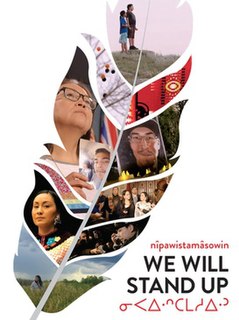Related Research Articles
Ronald Mann, credited professionally as Ron Mann, is a Canadian documentary film director.
Peter Lynch is a Canadian filmmaker, most noted as the director and writer of the documentary films Project Grizzly, The Herd and Cyberman.
The Hot Docs Canadian International Documentary Festival is the largest documentary festival in North America. The event takes place annually in Toronto, Ontario, Canada. The 27th edition of the festival took place online throughout May and June 2020. In addition to the annual festival, Hot Docs owns and operates the Hot Docs Ted Rogers Cinema, administers multiple production funds, and runs year-round screening programs including Doc Soup and Hot Docs Showcase.

Rob Stewart was a Canadian photographer, filmmaker and conservationist. He was best known for making and directing the documentary films Sharkwater and Revolution. He drowned at the age of 37 while scuba diving in Florida, filming Sharkwater Extinction.
Velcrow Ripper is a Canadian documentary filmmaker, writer, and public speaker, best known for his Genie Award-winning 2006 film Scared Sacred and his newest feature documentary, Fierce Light: When Spirit Meets Action. His 1995 feature documentary, Bones of the Forest, won twelve major awards, including a Genie Award, and Best of the Festival at the Hot Docs Canadian International Documentary Festival. Many of his films examine the intersection of spirituality and politics.
Nick Hector is a Canadian film producer and editor, and professor of film production at the University of Windsor.
Alan Zweig is a Canadian documentary filmmaker known for often using film to explore his own life.
A Hard Name is a 2009 documentary film by Alan Zweig that explores the lives of ex-convicts.
The National Parks Project is a Canadian music and film project. Released in 2011 to mark the 100th anniversary of the creation of the National Parks of Canada system, the project sent teams consisting of three Canadian musicians and a filmmaker to 13 Canadian national parks, one in each province or territory, to shoot and score a short documentary film about the park.
Ric Esther Bienstock is a Canadian documentary filmmaker best known for her investigative documentaries. She was born in Montréal, Quebec and studied at Vanier College and McGill University. She has produced and directed an eclectic array of films from investigative social issue documentaries like Sex Slaves, an investigation into the trafficking of women from former Soviet Bloc Countries into the global sex trade and Ebola: Inside an Outbreak which took viewers to ground zero of the Ebola outbreak in Zaire - to lighter fare such as Penn & Teller’s Magic and Mystery Tour.
The Academy of Canadian Cinema and Television's Award for Best Short Documentary is an annual Canadian film award, presented to a film judged to be the year's best short documentary film. Prior to 2012 the award was presented as part of the Genie Awards program; since 2012 it has been presented as part of the expanded Canadian Screen Awards.
In the Gutter and Other Good Places is a Canadian documentary film, directed by Cristine Richey and released in 1993. The film profiles three homeless men in Calgary, Alberta who support themselves dumpster diving and bottle picking for recyclable items.
Mum's the Word is a Canadian documentary short film, directed by Paul Carrière and released on September 10, 1996. The film centres on Rachel, Suzanne, Jeannine and Paulette, four Franco-Ontarian women in their mid-40s in Sudbury, Ontario, who, after marrying and raising children, are in the process of coming out as lesbian.
The Delian Mode is a Canadian short documentary film, directed by Kara Blake and released in 2009. The film is a profile of Delia Derbyshire, a British composer best known for arranging the theme music to Doctor Who. It takes its name from the title of a piece of incidental music that Derbyshire wrote in the 1960s.

nîpawistamâsowin: We Will Stand Up is a Canadian documentary film, directed by Tasha Hubbard and released in 2019. The film centres on the 2016 death of Colten Boushie, and depicts his family's struggle to attain justice after the controversial acquittal of Boushie's killer. Narrated by Hubbard, the film also includes a number of animated segments which contextualize the broader history of indigenous peoples of Canada.
In the Name of the Family is a Canadian documentary film, directed by Shelley Saywell and released in 2010. The film is an exploration of the issue of honor killing, focusing in part on the 2007 murder of Aqsa Parvez.
Inside Hana's Suitcase is a Canadian documentary film, directed by Larry Weinstein and released in 2009. Adapted in part from Karen Levine's book Hana's Suitcase, the film centres on the story of Hana Brady, a young Czechoslovak Jewish girl who died in the Holocaust, including the reminiscences of George Brady, her sole surviving brother who emigrated to Canada following the war.
The Last Round: Chuvalo vs. Ali is a Canadian documentary film, directed by Joseph Blasioli and released in 2003. The film centres on the 1966 boxing match at Maple Leaf Gardens between Canadian boxer George Chuvalo and world champion Muhammad Ali.
Narmada: A Valley Rises is a Canadian documentary film, directed by Ali Kazimi and released in 1994. The film documents the activist campaign of Narmada Bachao Andolan against the then-proposed Narmada Dam project in Gujarat, India, including a 200-kilometre protest march by over 6,000 people that followed Gandhi's principles of non-violent resistance.
André Mathieu, musicien is a Canadian documentary film, directed by Jean-Claude Labrecque and released in 1993. The film is a portrait of Canadian classical pianist and composer André Mathieu.
References
- ↑ "Festival first offerings provide diversity of themes". Vancouver Sun , September 30, 1995.
- ↑ "Crash wins Genie race But Lilies grabs prize for best movie". Toronto Star , November 28, 1996.
- ↑ "B.C. film named top Hot Doc". Toronto Star , March 25, 1996.